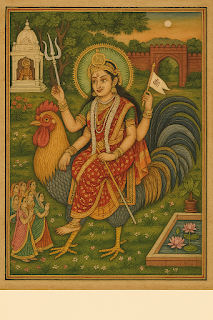Immortal Self...
Ratan Tata—a name closely tied to Indian industry and philanthropy—left behind more than an empire. The work he did and his values will inspire business leaders for years to come.
But have you ever wondered why we care so much about being remembered after we’re gone? There’s something fascinatingly human about this desire to leave behind a mark—a message that quietly says, "I was here." Let’s deal with this idea, exploring how, across centuries and cultures, people have tried to defy the finality of death. Not by literally living forever, but by leaving behind echoes of themselves, traces that persist long after they’re gone.
Throughout history, people have been drawn to rituals and symbols that attempt to defy death’s permanence. Look at how we honour the dead across cultures: the ancient Greeks would place coins with the deceased, believing they’d need them for a journey to the afterlife. Egyptians went even further, mummifying bodies to secure a physical place in eternity. Christians bury their dead facing east, awaiting a prophesied resurrection. Hindus perform rituals to “feed” ancestors, ensuring they are remembered and cared for, even beyond life. Each of these rituals gives us a glimpse into the deep-rooted human desire to influence what happens after we leave this world.
In these acts, we see a universal longing to guide the soul’s journey, to have a say in its fate, and to feel, in some way, that we still exist. But it’s not only spiritual beliefs; it’s also in the things we possess and accomplish. Over the centuries, people have found ways to continue “existing” through what they leave behind. Think of cities named after kings—like Ayodhya for Ram, or Hastinapur for the Pandavas. Or consider poets and playwrights like Shakespeare and Kalidasa, whose words are still read, quoted, and performed long after their voices went silent.
Our belongings, our art, even our ideas become fragments of us that remain. They keep our memory alive, not necessarily as a person, but as an impact, as an influence. And isn’t that, in a way, a form of immortality?
In a recent article in the Economic Times, Dr. Devdutt Pattanaik explored how humans pursue this sense of immortality by splitting themselves into two parts: the mortal self and immortal self i.e. the legacy they leave behind, whether material or intellectual. Possessions, wealth, and achievements become substitutes for enduring identity. Possessions serves as extensions of the self, outliving their owners and allowing society to remember people not as mere individuals, but as the lasting contributions they left behind.
Family plays a critical role in preserving immortal self. Human social structures, such as marriage and inheritance, serve to transmit heritage and possessions to future generations. By creating families, societies establish frameworks for passing down wealth, reputation, and lineage, often according to societal norms of legitimacy and inheritance. This structure helps perpetuate legacy, ensuring that one’s possessions continue to have meaning and influence, even beyond death, reinforcing the illusion of immortality.
As humans, we strive to outlive mortality by embedding ourselves within social and cultural constructs. While our lives are finite, our legacies and material imprints offer a sense of continuity, nurturing the hope that we can, in some way, outlive ourselves.





Comments